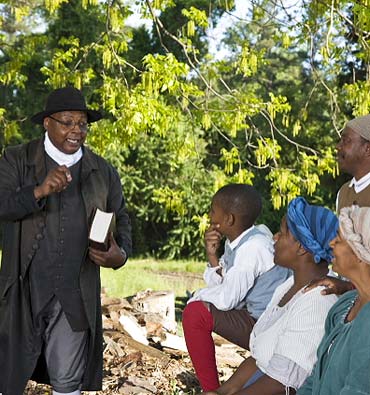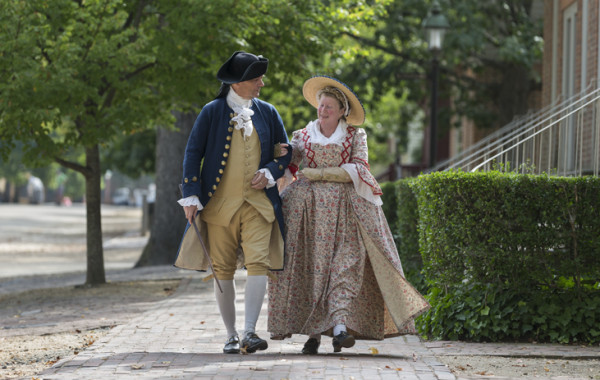
[brightcove videoID=4172282564001 playerID=2893748186001 height=315 width=560]
How should government protect liberty of conscience?
…
Inspiration for the Modern Revolutionary

[brightcove videoID=4172282564001 playerID=2893748186001 height=315 width=560]
How should government protect liberty of conscience?
…

In today’s divided political climate it’s easy to lose sight of how often Americans have had to work through their differences to find common ground.
…
By Bill Sullivan
Peter Manseau is the award-winning author of the memoir “Vows: The Story of a Priest, a Nun and Their Son” and the novel “Songs for the Butcher’s Daughter,” among other titles. His new book, “One Nation Under Gods,” examines the history of religious diversity in America, looking past the cliches of Puritans and awakenings to present a more nuanced, complicated-and interesting-picture of the nation’s spiritual life.
Looking forward to his visit to Williamsburg, we asked Mr. Manseau a few questions about what he has learned about being American from his historical inquiries.
PM: My previous books have each explored a religious subculture — I wrote a very Catholic memoir, a very Jewish novel, and two travelogues that explored the religious fringe in the U.S. and around the world. With “One Nation Under Gods” I wanted to tell a story in which readers would see how all those smaller groups add up together to create the fullness of American religious experience.
PM: As he said himself about the means by which he created his singular library, what really set Jefferson apart was the combination of time, resources and opportunity required to pursue a life uniquely devoted to an odd collection of searching, high-minded interests. While he was no doubt a genius, he was also representative of an age that was far more spiritually eclectic than we often remember.
PM: The biggest surprises were learning again and again how partial most of our educations have been in terms of making sense of the religious motivations at large in early America. Whether one believes the founding of the nation was ordained by God, or that it was a wholly secular undertaking, the reality was much more complicated than either side teaches.
PM: To me there is no greater affirmation of the special role America plays in the world than to discover its history is far more complex than most have supposed. To challenge the notion that the United States is a Christian nation is not to question the place of values at its core, but rather to recognize that the country’s aspirations are too big to be contained by a single set of religious ideas.
PM: To be part of a religiously pluralistic society is to engage in a paradox: Belief matters both very much and not at all, because we have the right to believe as we please. Despite the ideological distance between many Americans, we live in unspoken agreement that we are bound together by something more significant than our individual beliefs. Members of groups with conflicting commitments may have their identities, their sensibilities — and, sometimes, their bodies — assaulted by proximity to those with radically different ideas, but all are joined in the inevitability that they will be enriched and transformed by difference as well. The process is frustrating for all concerned, and this is perhaps as it should be.
Peter Manseau will be speaking at Bruton Parish Church in Williamsburg on Wednesday, April 1, 2015 at 7:30 p.m. as part of Colonial Williamsburg’s Religion Month offerings. No ticket or reservation is required.
Religion Month activities, including these lectures, are generously supported by a gift from the Kern Family Foundation.
By Claire Gould
“Everyone here is white and over 50! Where are our young people? Where are our young black students? This isn’t dead, ancient history—it really wasn’t that long ago!”
…
By H. Michael Hartoonian, Richard D. Van Scotter, and William E. White
Recent events in Jefferson County, Denver, Colorado, underscore a misunderstanding Americans generally hold regarding the U.S. history curriculum. What’s happening in Colorado and in other states, such as Texas and Florida, highlights an essential question. Is American history a patriotic celebration? Or is American history a story that empowers students to become engaged citizens of our 21st century nation? The good news is that the confrontation puts history and civics in its rightful position at the center of the school curriculum. There is no subject more important to the future of the United States.
…